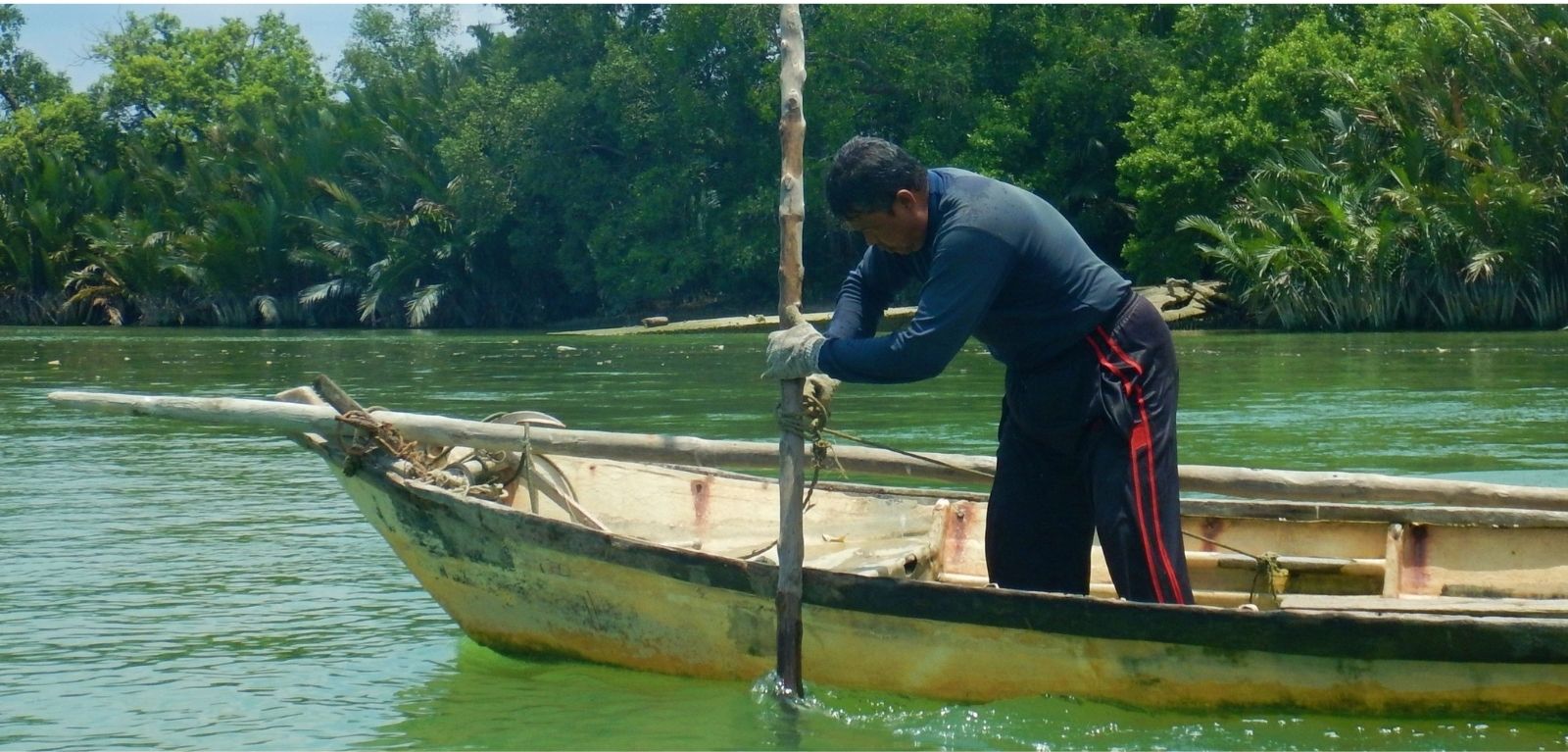New species named by SBS expert to be protected in sustainability project
A SBS researcher who led a team which discovered a rare new species of oyster is working on a biodiversity project with academics in Malaysia to ensure that it is protected.

Dr Julia Sigwart, a mollusc taxonomist, and colleagues have named the new species Crassotrea (Magallana) saidii.
The oyster species, the subject of a research paper published in Marine Biodiversity today, was discovered during a collaboration with academics at Universiti Putra Malaysia aimed to increase the oyster population in the Muar River in the state of Johor, south of the Malay Peninsula.
Although local fishers have known about this species, which lives in one tiny estuary and may be threatened by urbanisation, since around the 1860s, it has not been officially named until now as scientists were unconvinced it differed from a similar, more common species until DNA testing took place.
Dr Sigwart explained: “Fishing is still carried out in the same traditional way that harvested the oysters more than 160 years ago and involves free diving and collecting the fish by hand one by one. The fishers depend on catching and selling these oysters as their source of income but the process is recognised as being horrendously dangerous and tragically one of the fishermen who was involved in the project died this year.
"A local businessman, Md Saidi Bin Mohamed, keen to raise awareness of the oyster - considered a delicacy with a unique flavour and once only allowed to be eaten by the Sultan of Johor and his closet advisors – was concerned about whether these fishing processes were sustainable and contacted the Universiti Putra Malaysia to see if they could help.
“When my collaborator Dr Leena Wong met the fishers they told her there are two oyster species living together in the estuary. As an oyster expert she was dubious that they were a separate species so she sent the samples for DNA testing and the fishermen were proven right – it did not match any known species. It shows that local people know their local species!”
Dr Sigwart, whose research group at Queen’s works to understand global patterns of biodiversity, was tasked with documenting all oyster species in a practice known as taxonomy and says that there are around 20 species of oysters than can be eaten.
As part of this project she named the new species Crassotrea (Magallana) saidii after Md Saidi Bin Mohamed, who has been actively promoting research and conservation for the sustainability of this oyster since 2013. The name recognises his dedication, commitment, passion, and discovery of the new species.
The newly named species is about 120mm by 6mm with a relatively flat shell with brown scales.
Dr Sigwart explained: “You can’t protect a species unless you know it exists through scientific validation, so it was important to make that distinction between it and any other species. Official validation helps manage sustainability as scientists have more influence in encouraging the government and those who fish to protect it. It also ensures it has the best possible market value when it is sold as food.
“The population does seem stable but it’s worrying that the only known occurrence of this species in the world exists in such a small area and we don’t know what is coming downstream that might threaten it.
“Tropical Southeast Asia is a very biodiverse region and this particular area of the Muar River is a rich and important habitat which can tell us a lot about climate protection and global biodiversity.”
Dr Leena Wong added: “Our research group at Universiti Putra Malaysia, which has specialist local knowledge of biodiversity, is now working to develop aquaculture approaches to increase the Crassotrea (Magallana) saidii oyster population.
“We are pleased that experts from Queen’s University who have extensive knowledge of global biodiversity, are supporting us in this important work.”

